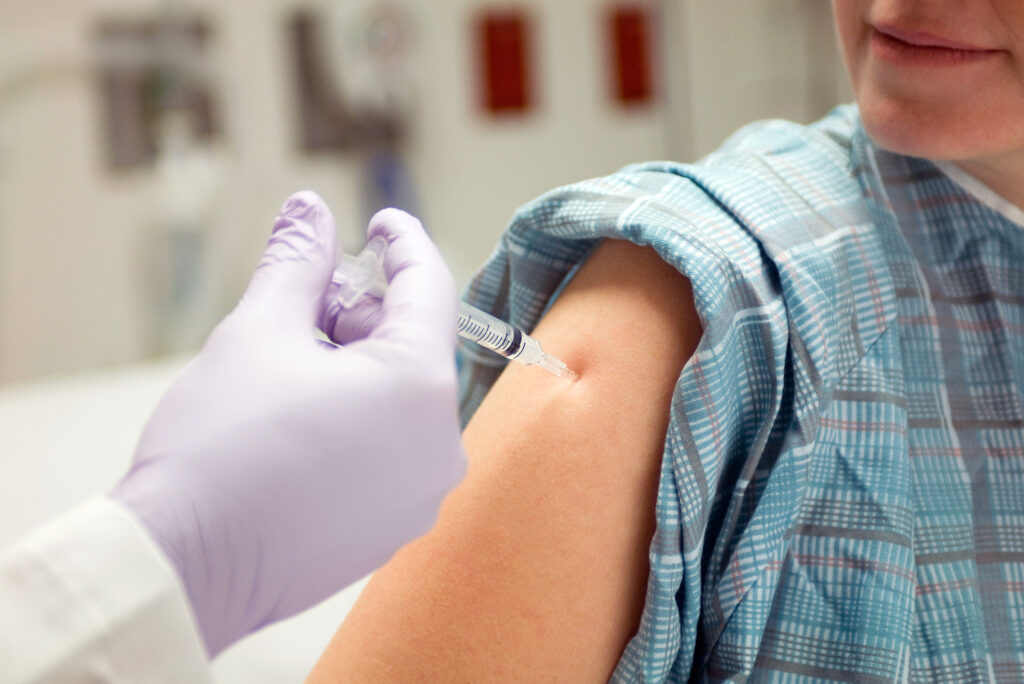Many recent developments in COVID-19 vaccines and RSV medication have left consumers feeling confused.
A new COVID-19 vaccine is due out in mid-September to address the variant EG.5 which is now the most common form of COVID-19 in the nation. It’s on the upswing in West Virginia.
The FDA recently approved the use of an RSV vaccine for adults and a separate monoclonal antibody, or preventative medication, for infants.
Many are left wondering which shot to get when, and in which order.
Dr. Michael Kilkenny, the CEO and health officer for the Cabell-Huntington Health Department, said he empathizes with the general public’s vaccine confusion.
“Certainly we’re excited to have the additional tools of new RSV treatment and or prevention in the form of the vaccine for adults, but also the monoclonal antibody for the infants,” Kilkenny said. “And then to have flu and COVID together again, this year.”
Dr. Lisa Costello is an assistant professor in pediatrics at WVU. She recommended checking with a physician about your vaccination status and to plan ahead.
“It’s going to be different than when it comes to COVID shots than it was in the past,” Costello said. “I think it’s going to be important to check with your healthcare provider, your local health department, your local pharmacy to see what they carry and to plan.”
Dr. Kathryn Moffett, a pediatric infectious disease specialist with WVU said physicians and experts track influenza season around the world, annually to gain insight on each year’s strain.
“Influenza, we’ve heard around the world, that in the Southern Hemisphere, South America and Australia that this year has been a particularly bad flu year,” Moffett said. “So if that predicts at all, what we’re going to have, watch out. We often look to see what’s happening in the rest of the world, and also what strains are circulating. And then our flu vaccine that we use is based on what is predicted, may come here based on what’s circulating in the rest of the world.”
This will be the first time the federal government is not buying all the COVID-19 vaccines and distributing them for free. A federal program to provide free shots to uninsured people at pharmacies probably won’t launch until mid-October, according to the CDC.
Doctor’s offices and other vaccine administrators will be responsible for securing vaccines and hoping there is enough demand to be reimbursed, even for insured individuals.
Kilkenny said the Cabell-Huntington Health Department will work to deliver vaccines to all who need them.
“What we understand at the health department is that it’s very important for people to be able to get their vaccines regardless of their ability to pay for them, and so we’re going to be certainly advocating for availability for people who can’t otherwise afford them,” Kilkenny said. “We’ll be looking to try to serve as many proposals as possible. Because we believe that everyone’s valuable, and everyone should get the same recommendations, and then they should have the same access.”
Appalachia Health News is a project of West Virginia Public Broadcasting with support from Charleston Area Medical Center and Marshall Health.




















 PhotoAlto/Michele Constantini
PhotoAlto/Michele Constantini